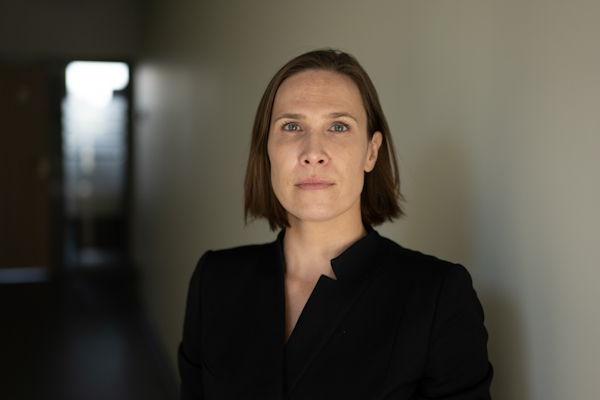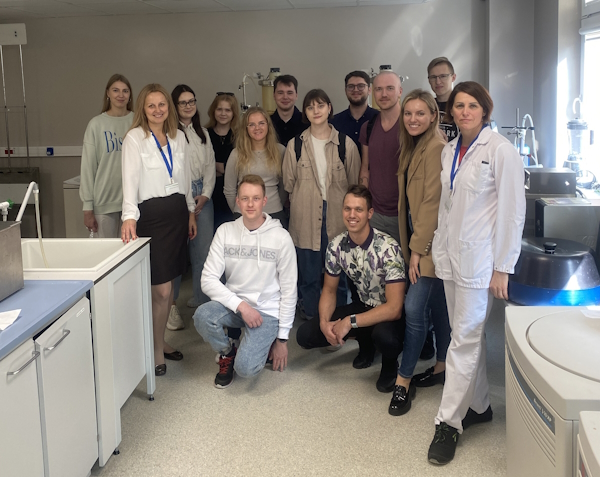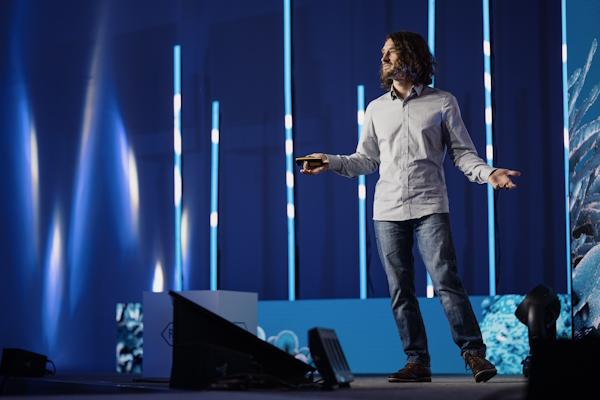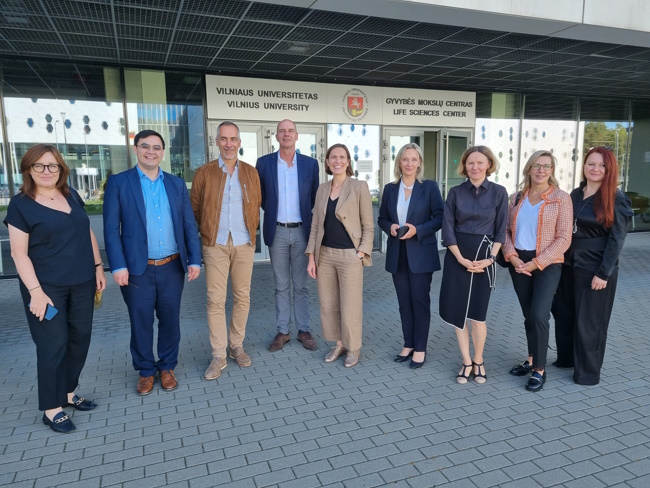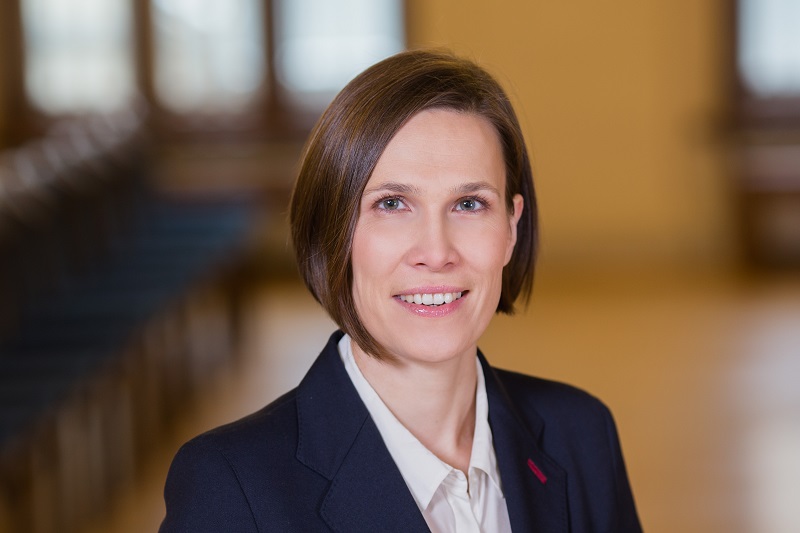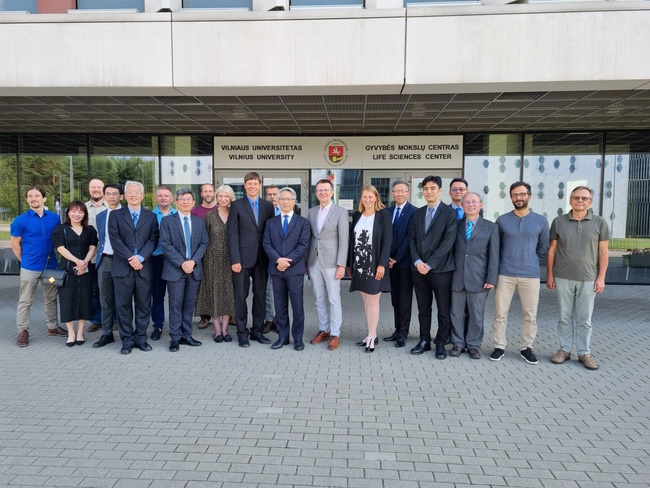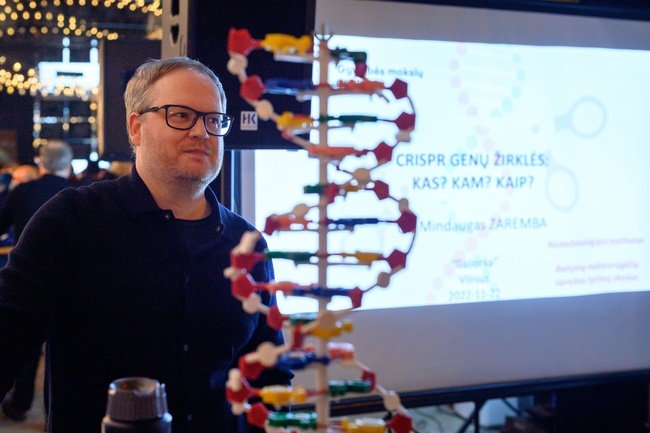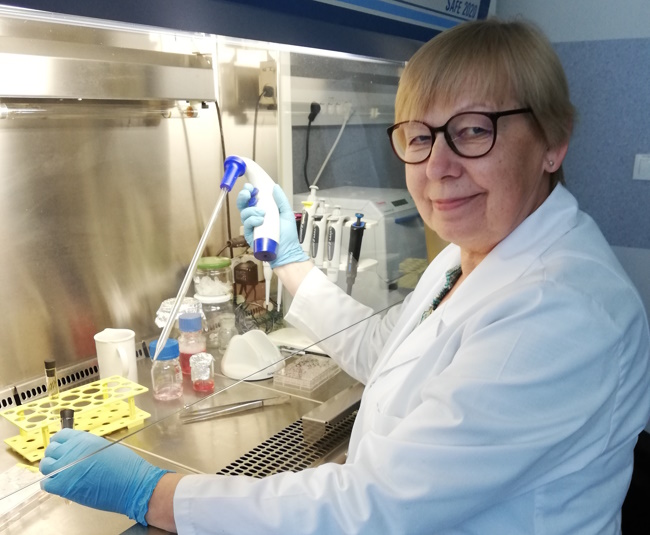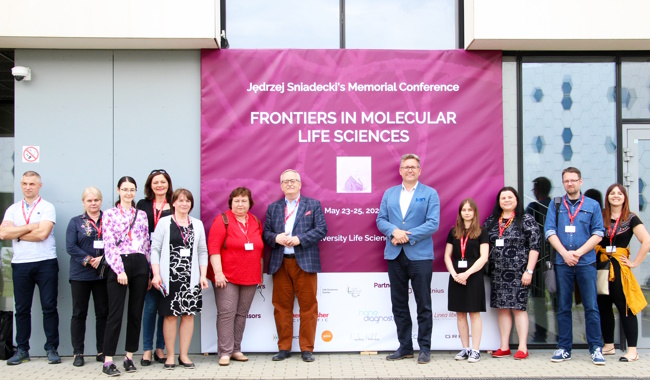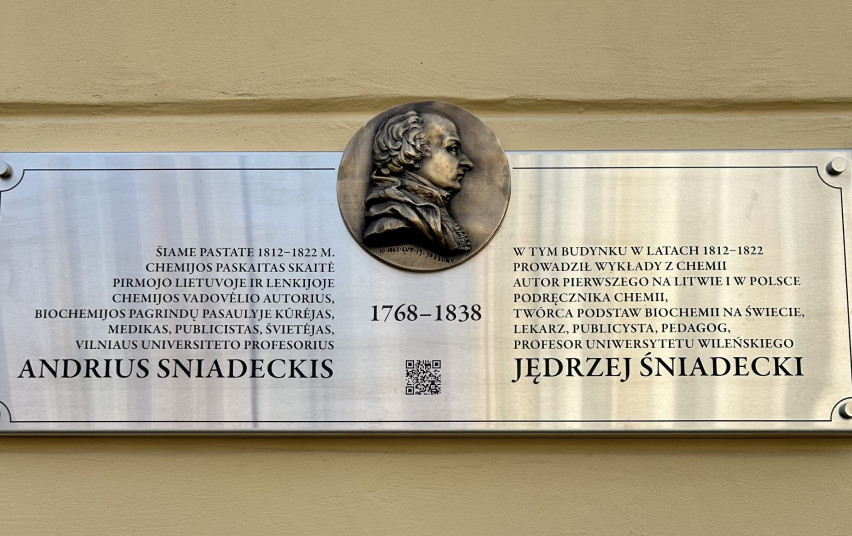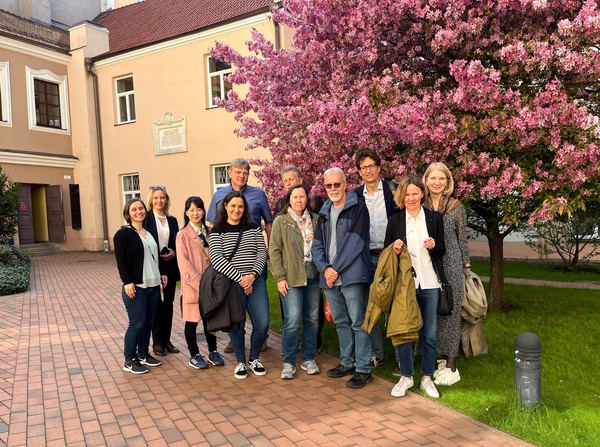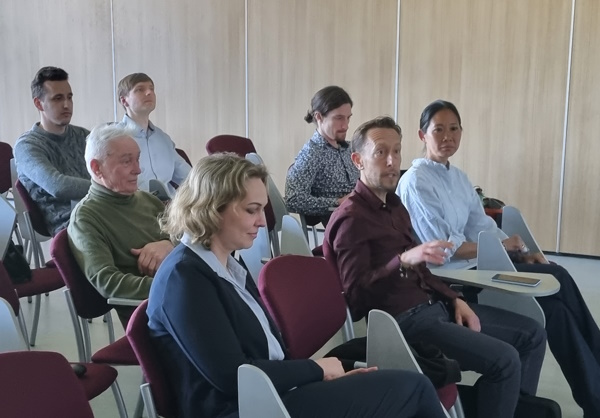Dr Urtė Neniškytė – about Membership in a Prestigious Network of Neuroscientists and the Latest Research on One of the Most Aggressive Brain Cancers
This year has been extremely productive for neuroscientist Dr Urtė Neniškytė: she has just been announced a member of the FENS-Kavli Network of Excellence, she has already published important scientific research, and a few days ago, she congratulated her PhD student on defending her thesis. “It is of great importance for me to represent Lithuania, Lithuania’s neurosciences, and show that they are being successfully developed in our country,” she says.
European Biotech Week 2023: Master's Students Visited Some of the Largest Biotech Companies in Northern Europe
To celebrate European Biotech Week 2023, students of the Master's degree programme in Molecular Biotechnology at VU LSC visited two biotechnology companies based in Lithuania - AB Amilina Roquette R&D Department and Bioenergy LT. Both companies are members of the Lithuanian Biotechnology Association LithuaniaBIO.
Life Sciences Baltics: from Insights into the Future of Life Sciences to a Virtual Photoshoot with the 5DWB Molecule
The "Life Sciences Baltics" conference took place in Vilnius last week, bringing together life science enthusiasts from more than 20countries of the world. This biennial event aimed to discuss the development of biotechnology, digital health technologies, the advancement of medicine, and the future prospects of life sciences.
CNRS Representatives Visited LSC
Representatives of the French National Centre for Scientific Research (CNRS) - Dr Emmanuel Brouillet (Head of the European and International Affairs Division of the Institute of Biology) and Dr Gilles Bonvento (Director of the Laboratory of Neurodegenerative Diseases) - visited the Vilnius University Life Science Center.
Dr Urtė Neniškytė Selected as One of the 15 FENS-Kavli Network of Excellence Scientists
The FENS-Kavli Network of Excellence (FKNE) has announced the recruitment of the new 2023 cohort of FENS-Kavli Scholars. Dr Urtė Neniškytė, a neuroscientist at the Vilnius University Life Sciences Center, is among the 15 selected scientists.
LSC to Co-operate with Academia Sinica
A delegation of Academia Sinica of Taiwan has visited the Vilnius University Life Sciences Center (VU LSC) to discuss a possible future scientific co-operation.
Dr Mindaugas Zaremba: Research on Bacteria Has Already Given Birth to the Scissors of Genes and Genomes, How Much More Potential Is There in Them?
Research into bacterial virus protection systems has led to the development of CRISPR-Cas genome scissors, which have made Lithuanian researchers famous worldwide. “It shows how great the potential of this research is, how many undiscovered mechanisms of action there are, which may have many applications in biotechnology, molecular biology, industry and so on in the future,” says Mindaugas Zaremba, a researcher at the Institute of Biotechnology of Vilnius University's Life Sciences Center.
Dr V. Bukelskienė: We’ll Have to Wait for the Artificial Heart yet
Artificial tissues and organs may replace natural ones, however, we cannot say when it will happen, biochemist Virginija Bukelskienė, doctor of physical sciences, says in the interview. “We will have to wait and work intensively. Especially if we are talking about complex organs”, states the researcher of the Life Sciences Center of Vilnius University.
Proposals to Strengthen Links with Polish Scientists Heard at the Conference in Memory of Prof. J. Sniadecki
On 24–25 May 2023, the VU Life Sciences Center hosted an international scientific conference 'Frontiers in Molecular Life Sciences' in memory of Prof. Jędrzej Śniadecki. The organisers of the conference were VU Life Sciences Center, the Lithuanian and Polish Biochemical Societies.
Commemoration of Professor Jędrzej Śniadecki
Today, a memorial plaque was unveiled on the wall of the Ministry of Education, Science and Sport to Jędrzej Śniadecki, a physician and teacher, who was the founder of chemical science in Lithuania. In the building here, he founded and headed the first Department of Chemistry at Vilnius University (VU), from which chemistry as a separate discipline began.
New Lifelong Learning Course "Molecular Medicine" at the Life Sciences Center
VU Life Sciences Center is launching a new lifelong learning course "Molecular Medicine".
Personalized or precision medicine fundamentally changes the concept of disease control and brings more and more genetic, genomic, molecular medicine research into clinical practice. The purpose of this advanced training course is to provide doctors and other specialists with the basics of practical work in the molecular research laboratory, to familiarize them with the latest molecular diagnostic methods and their application in clinical practice.
EMBL Presented Its Opportunities to Lithuanian Scientists
The European Molecular Biology Laboratory (EMBL) Information Day at the Life Sciences Center of Vilnius University introduced Lithuanian scientists to this international scientific institution and the opportunities for cooperation with it.
European Space Agency Representatives Presented Funding Opportunities
The VU Life Sciences Center was visited by representatives of the European Space Agency (ESA) Jennifer Ngo-Anh and Michele Iapaolo.


